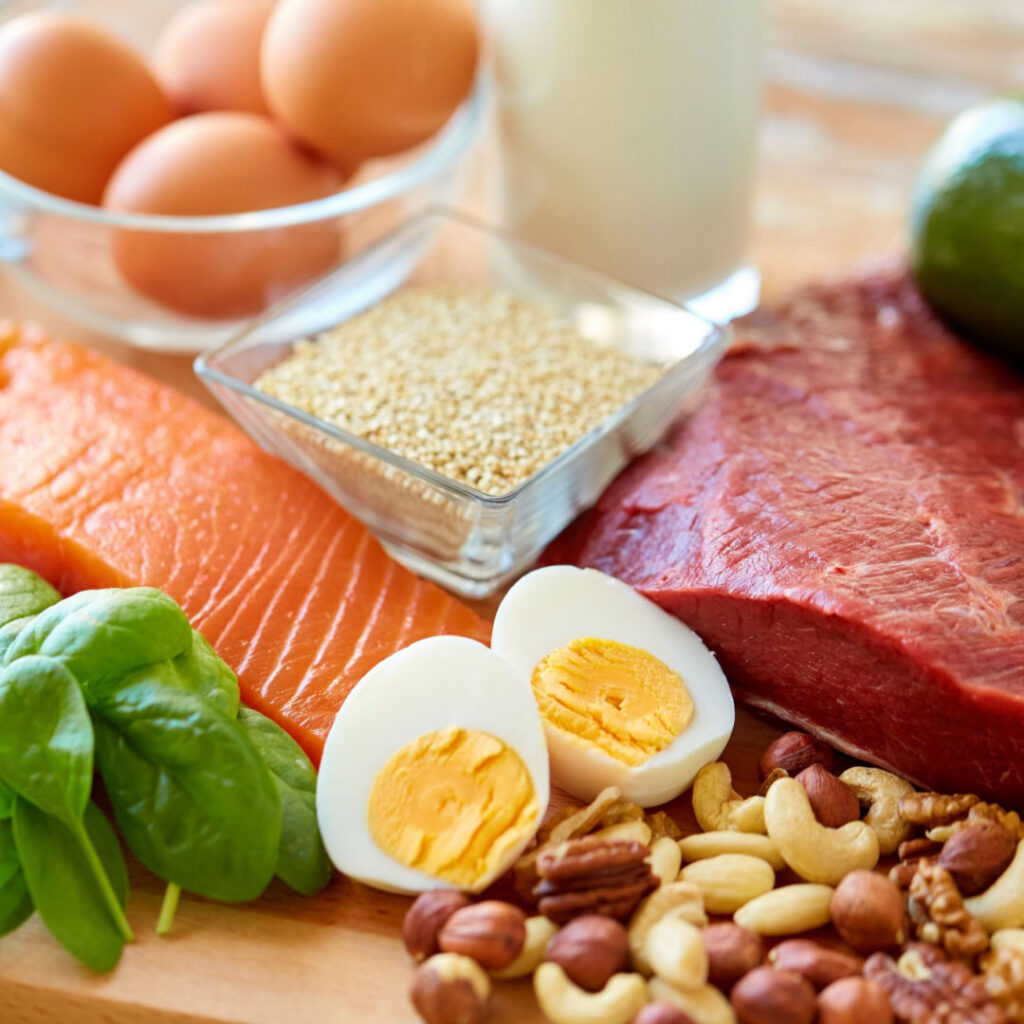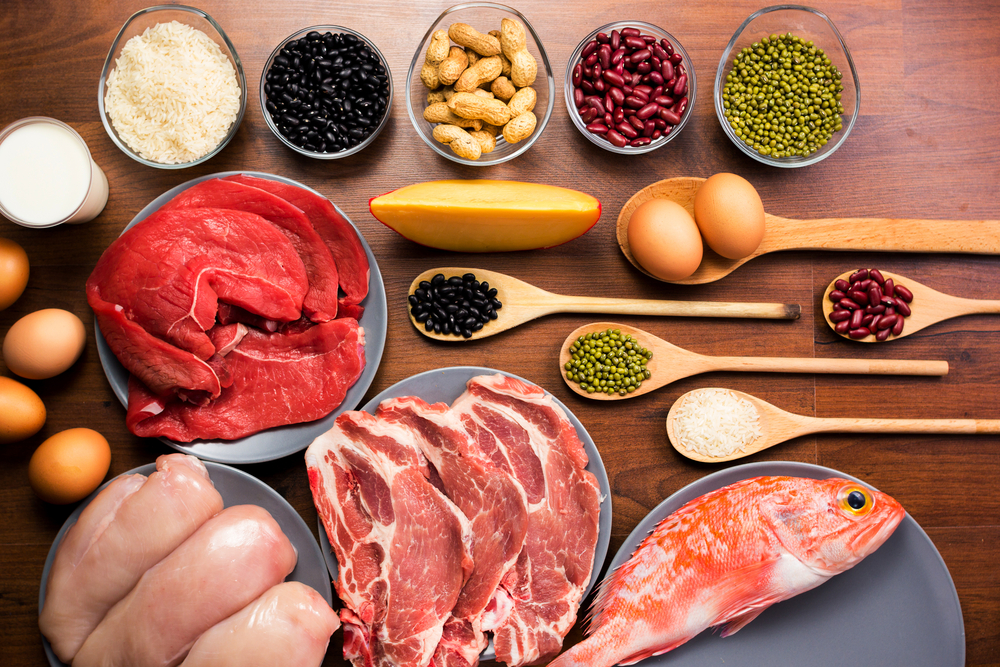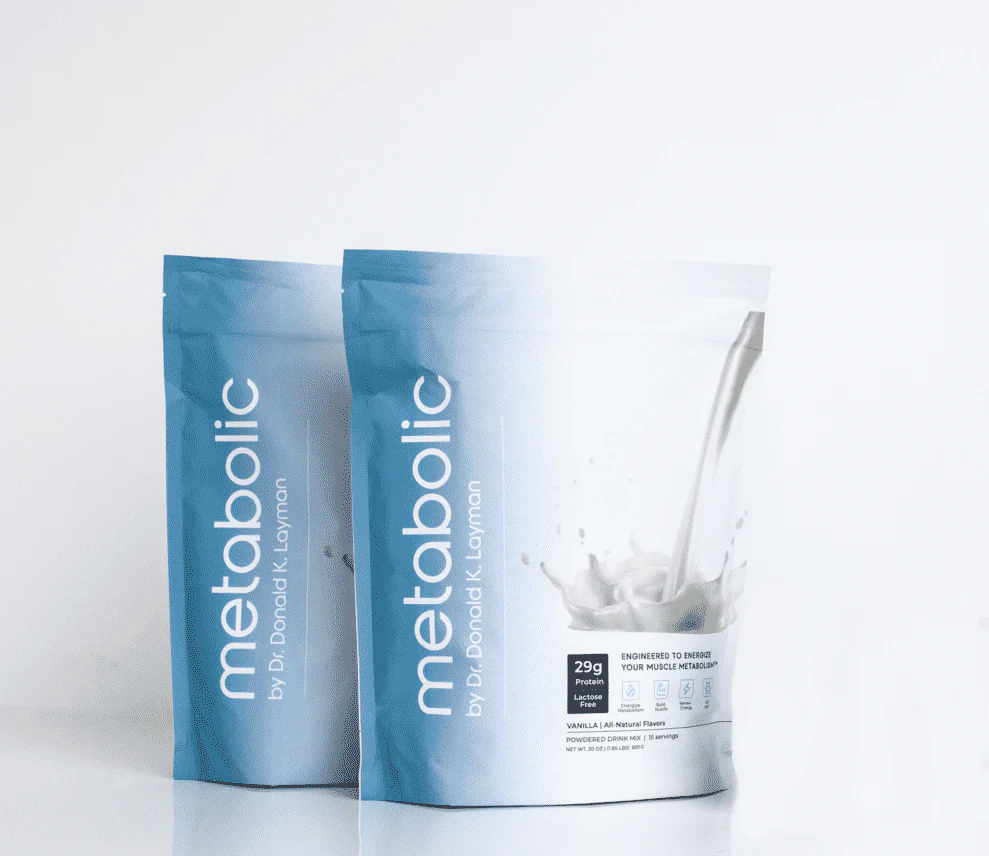If you are looking at making your diet healthier, and looking to build a leaner body, you have almost certainly come across the notion that you should eat more protein. BUT you might be wondering WHY protein is important, and what the benefits really are.
And if so, you’re not alone. There is a lot of information and misinformation about why protein is important that can make it quite all confusing. Don’t distress…we’ve consulted with some of the top experts in the field and will help you sort through the confusing clutter and make sense of the dramatized data, to help you understand once and for all….why protein is important. And it is!
In this article, we’ll explore not only why protein matters it matters to your body, but we’ll also look at what foods are high in protein so you know how to increase your protein intake on a day to day basis.
Do We Really Need Protein?
First we should understand the we don’t really need protein, but what we really need is the 20 amino acids that make up protein. Its a subtle but important difference. As an analogy its similar in concept to a multivitamin.
While our body doesn’t really need a the multivitamin, we need the individual vitamins and minerals contained within the multivitamin. And so it is with protein. Our body cannot manufacture essential amino acids, so it must get them from dietary sources. Our failure to eat the right amounts of amino acids will deprive our body of the ability to preform necessary functions.
So What Is Proteins Role in Our Body? Just About Everything.
Proteins are like the construction workers of our body. Just as construction workers are needed to build and repair buildings, proteins are needed to build and repair the body’s muscles, organs, and tissues. They help to grow new cells and repair damaged ones, they keep our skin, hair, and nails healthy, they are essential to the function of enzymes, hormones, and other molecules, and they help to support a strong immune system. Without enough protein, our body would not be able to function properly.
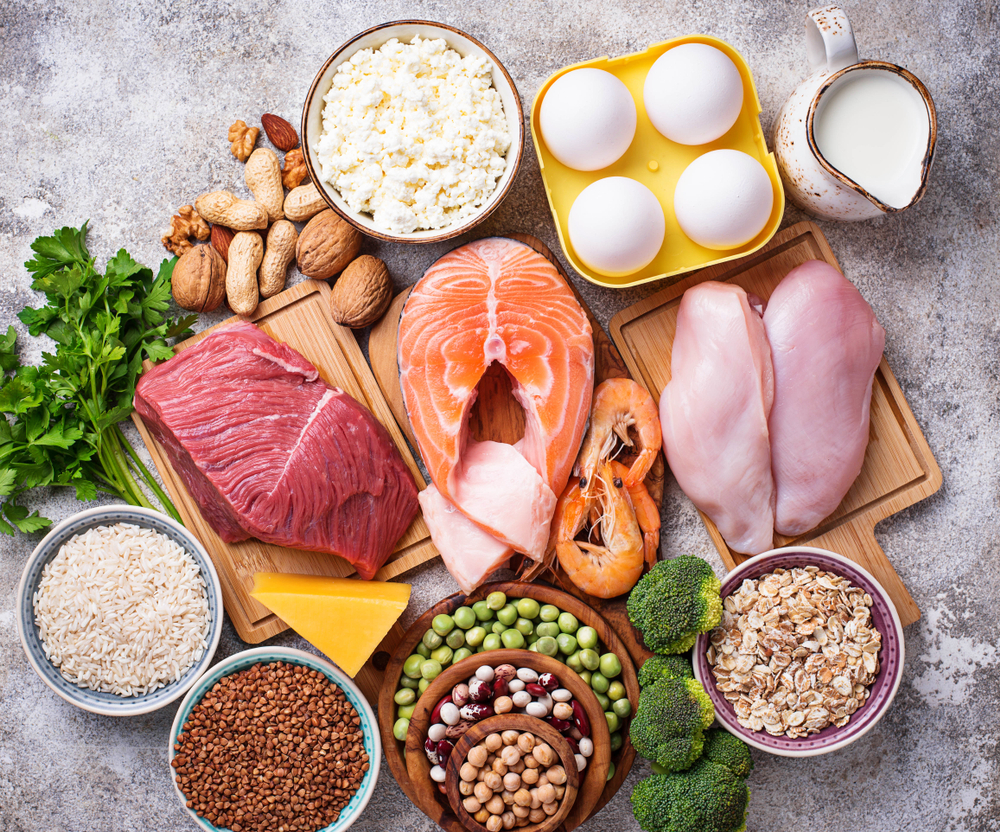
Why is Protein Necessary to Consume Daily?
There are a lot of things that make protein good for you, and we all know that we need to include at least some protein in our diets in order to stay fit. Protein helps your body in the following ways:
- Lets you build and repair muscle tissue
- Increases your metabolism
- Helps you feel full and controls hunger, including reduced craving for carbohydrates and sugar
- Maintains strong bones
- May help to lower your blood sugar levels, which could reduce your risk of diabetes, heart disease, and other diseases
- Maintaining a strong immune system
- Boosts your metabolism, making it easier to lose and maintain weight

How Does Protein Help Your Muscles?
Muscles are probably one of the most important things to pay attention to when it comes to fitness and well-being – and protein is the thing that will help you to build your muscles. The more physically active you are, the more dependent you will be on high protein meals to make sure your muscles remain strong.
This is true for adults of all ages, but you should be particularly aware of it if you are a senior citizen. As people age, their muscle mass tends to decrease, and this can lead to weakness and fatigue, as well as difficulty completing daily tasks.
If you aren’t getting enough protein in your diet, even if you are young and fit, this is likely to be a much bigger problem. Your weight may not significantly change, but your body fat will go up as your muscle mass decreases.
Eating protein helps build and repair muscles by providing the body with the building blocks it needs to create new muscle tissue and repair damaged tissue.
Proteins are made up of smaller units called amino acids, which are like the legos of the muscles. When we eat foods that contain protein, like chicken, fish, eggs, and beans, our body breaks down the protein into these amino acids and uses them to build and repair muscle tissue.
Think of it like this: imagine your muscles are a big puzzle and the amino acids are the puzzle pieces. When you eat protein, you’re giving your body more puzzle pieces to work with, so it can build bigger and stronger muscles.
Also, when you workout and put stress on your muscles, you may cause some muscle fibers to be damaged, eating protein after workout helps to repair those fibers and make them stronger.
How Does Protein Improve Your Metabolism?
Because protein is more difficult for the body to digest than carbohydrates or fats, it requires more energy to break down and process. This means that your body burns more calories simply by digesting protein-rich foods.
Second, protein can help to increase muscle mass. Muscle tissue is more metabolically active than fat tissue, which means that it burns more calories even when you’re at rest. By consuming enough protein to build and maintain muscle mass, you can increase your overall metabolism and burn more calories.

How Does Protein Help Control Cravings?
Consuming protein can help control appetite and sugar cravings by promoting feelings of fullness and reducing overall calorie intake.
Protein is known to have a higher thermic effect than carbohydrates and fats, meaning that it requires more energy to digest, which can help to increase feelings of fullness. Additionally, protein can stimulate the release of hormones such as GLP-1, PYY, and CCK, which are known to promote feelings of fullness and reduce appetite.
A study published in the International Journal of Obesity found that consuming a high-protein diet led to greater feelings of fullness and a reduction in overall calorie intake, resulting in weight loss. Another study published in the Journal of Nutrition found that consuming a higher protein breakfast led to a reduction in overall calorie intake and a decrease in cravings for sweet, salty, and fatty foods throughout the day.
Additionally, consuming a high-protein diet may also help to reduce sugar cravings by regulating blood sugar levels. A study published in the Journal of Nutrition found that consuming a high-protein diet led to improved glucose tolerance and a reduction in cravings for sweet foods.
How Does Protein Help Build Strong Bones?
Protein plays a role in building strong bones by providing the body with the building blocks it needs for bone growth and repair. Proteins are the main component of bone, and they provide the structural support necessary for bones to be strong.
A study published in the Journal of Bone and Mineral Research found that consuming a high protein diet is associated with increased bone density and a reduced risk of osteoporosis. This study also suggested that protein intake during childhood and adolescence is particularly important for the development of peak bone mass, which can help to prevent osteoporosis later in life.
Another study published in the American Journal of Clinical Nutrition also found that a high protein diet was associated with greater bone mineral density in postmenopausal women. The study also found that higher protein intake was associated with a lower risk of fractures.
It’s important to note that it’s not only about the quantity of protein consumed, but also the quality. To maximize the benefit of protein on bones, it’s important to consume a variety of high-quality protein sources that are also rich in essential minerals such as calcium, phosphorus, and magnesium.
How Does Protein Help Your Blood Sugar?
Eating more protein decreases the amount of sugar that you are likely to eat in a day because it will lower your snack cravings. It can also make it easier to cut down on carbohydrates that cause blood sugar spikes, meaning your overall diet will get healthier.
This can improve your general health considerably, because you are more likely to opt for greens and vegetables if you aren’t feeling hungry and craving sugars. By choosing proteins, you make sure you feel full without the need for sweet foods, and this should help to bring your blood sugar levels down.
How does Protein Help Your Immune System?
Protein plays a vital role in maintaining a strong immune system by providing the building blocks for the production of antibodies and other immune molecules. Antibodies are proteins that help to identify and neutralize harmful pathogens such as bacteria and viruses. Additionally, white blood cells called lymphocytes, which are important for the immune response, are also made of proteins.
A study published in the Journal of Nutrition found that consuming a high protein diet is associated with improved immune function and a reduced risk of infection. The study also found that adequate protein intake is essential for the proper functioning of the immune system, especially in older adults, who are at a higher risk of infection.
Another study published in the British Journal of Nutrition found that adequate protein intake is crucial for the development of immune cells and the production of antibodies, which can help to prevent infection. The study found that a higher protein intake was associated with a lower risk of infection in older adults.
Can Protein Help With Weight Loss?
Most forms of protein contain an amino acid that is known as leucine. This is a critical amino acid that plays a role in how your body metabolizes energy, how it uses glucose, and it regulates insulin, and how the muscles synthesize protein.
If you do not have enough leucine in your diet, there is a risk that these things will not happen properly, and your metabolism will slow down. Dietary protein makes a huge difference to your metabolism and the support of your muscles.
When the leucine from your food enters your muscle, it triggers a regulatory protein known as mTOR, and this is responsible for telling that muscle to build up new proteins. Without this protein, there is a risk that your muscles will start to waste and old or damaged tissues won’t be replaced or repaired.
This process is important at all times, but becomes even more critical if you have experienced any form of injury, or if you are losing weight or you are ill.
Does Protein Help You Burn More Calories?
It might surprise you, but eating protein can alone be enough to slightly increase your body’s energy use. This is because protein takes more energy to digest. It has a higher Thermic Effect for Food, and to absorb it, you need to use up about 15 to 20 percent of the energy that it provides.
That means that you get less energy value overall when you eat protein. If you eat the same amount of protein as you do carbohydrates, you will gain less fat, because your body needs to burn more energy to take the protein in.
A lot of people use this to help themselves lose weight, because they don’t have to diet and they don’t have to spend their time feeling hungry. You can still eat as much food, but you will get fewer calories from it.
Does it Matter When You Eat Protein?
A lot of people get the majority of their protein in their evening meal, rather than in the morning. This is not as beneficial, because it means you are more likely to snack and eat carbohydrates during the day. You will also waste the sense of fullness that comes from eating protein, because you will likely be asleep for approximately 8 hours – meaning you’re hungry again by breakfast.
Eating protein at breakfast will help you to feel full throughout the day, and should make it easier to hold off on eating until lunch. If you are prone to snacking in the morning and then eating a big lunch, it’s probably because your breakfast lacks protein. You can deal with this problem by choosing different foods for breakfast to bump up your protein intake.
This will help you to feel fuller for longer, which should improve your diet and help you to cut out sugars and unhealthy snacks. Ideally, your breakfast should have at least 30 grams of protein in it, as this will ensure you get enough to provide your muscles with leucine. Protein rich breakfast ingredients include:
Greek yogurt
Cheese
Bacon
Smoked salmon or other forms of fish
Peanut butter
Chicken sausages
Tofu
Beans
Oatmeal
Eggs
Milk
Try to use your breakfast as an opportunity to give your body an essential hit of protein, and you’ll make yourself healthier.
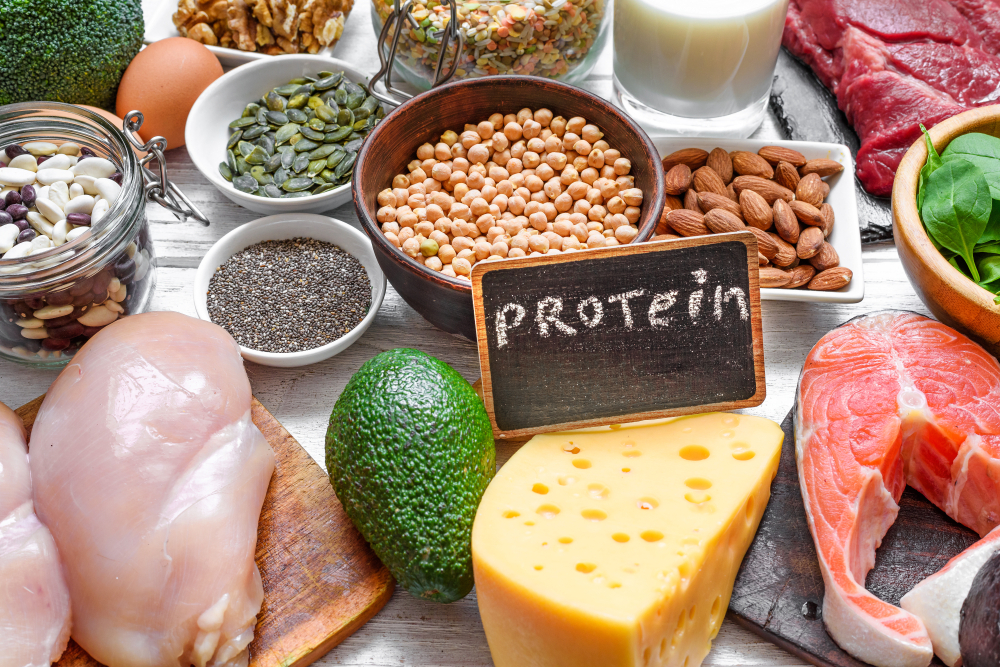
Conclusion
Protein is critical to your body for many reasons, including muscle metabolism and weight loss. It will help your body build new muscle tissue, repair existing tissues, and can lower your blood sugar levels, reducing your risk of diabetes. It is essential that you work to get the right amounts of quality protein into your diet early each day for maximum health benefits.
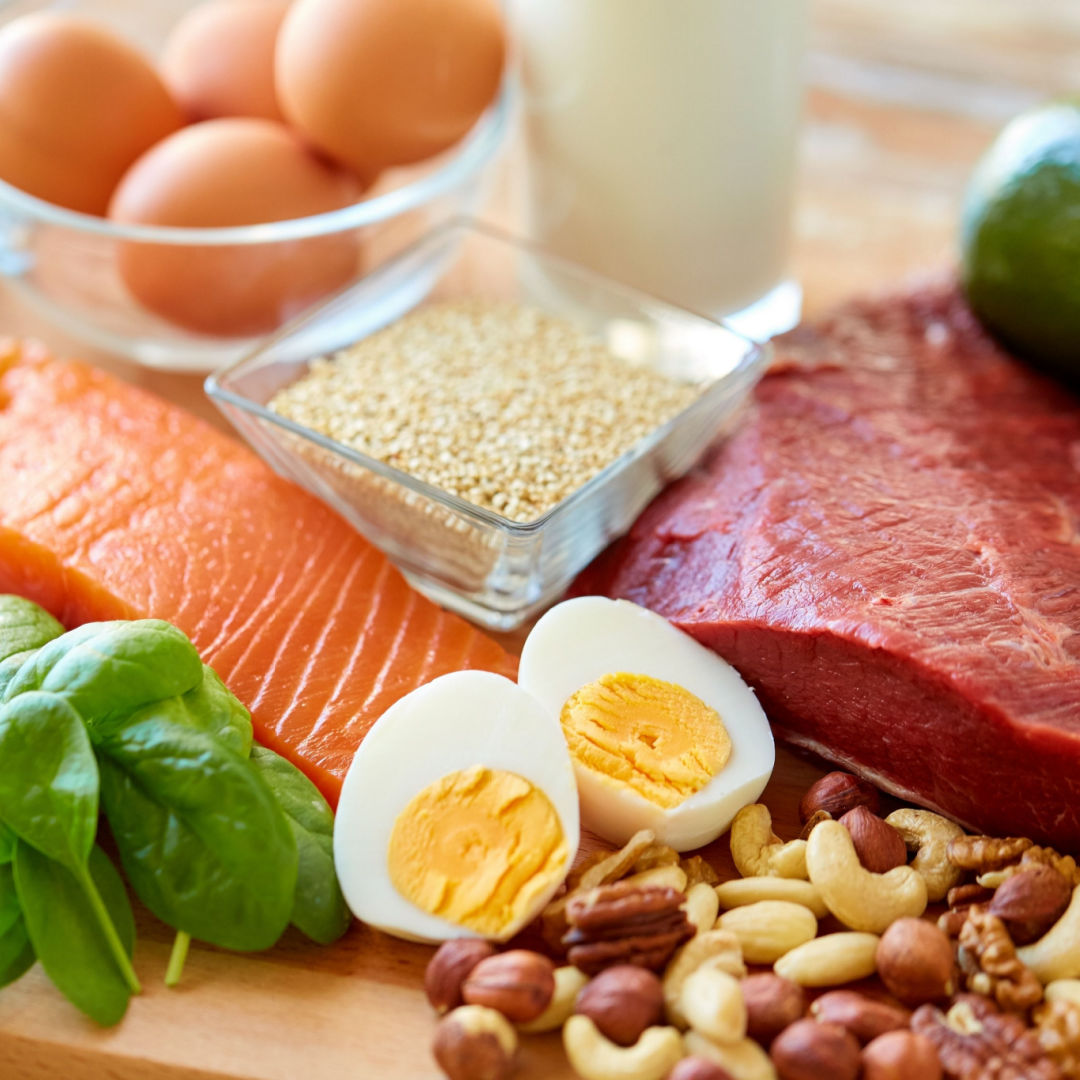
Why Protein is Important – The Key to a Healthy Diet
If you are looking at making your diet healthier, and looking to build a leaner body, you have almost certainly

